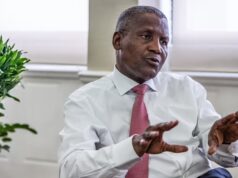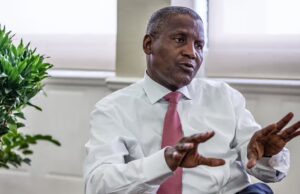
The high decibel demand of the developing world, particularly from the
African continent, for an equitable flow of resources for their
development works from developed countries and multilateral sources
should not be brushed aside as another inconsequential “wish list”. It
is a collective expression of angst of one –thirds of the world
population against the raw deal they have been getting. The narrative
of the UNCTAD 2020 Trade and Development Report and the recently
concluded 75th UN General Assembly flags this shared concern.
It is pertinent to analyze why the developing world is more vociferous
on their demand for a fair treatment than ever before. The flash
point could be Covid-19 pandemic and its economic impact. Commitments
to financially support the fragile poorer economies are largely
unfulfilled. Let us pick on some of the recent developments to drive
home the gaps between commitment and delivery with special reference
to Africa, which is home to 28 most backward economies. The recent
pledge of the G-20 to inject US$5 trillion into the global economy to
limit economic losses from the Covid-19 crisis is a case in point.
How effective any such rescue package will be, and how much of it will
reach developing countries, remains to be seen. The IMF has signaled
that it is willing to fully deploy its current US$1 trillion lending
capacity to help deal with the crisis. However, not only is this
insufficient, but financing instruments to be used are complex.
Coupled with inappropriate conditions, it is construed as a ploy of
the multilateral funding agencies to service the existing debts and
not for spending on people centric development plans. Besides, such
funds, mostly routed through the IMF in the form of Special Drawing
Rights, are difficult to access quickly since the receiving
countries are directed to deploy the resources for specific heads .
Temporary standstills on debt service payments or to suspend these
payments for a given period of time to allow debtors to propose
restructuring plans is critically important. Another important factor
that can protect the poorer economies is to have a ban on legal
remedies during this time by the creditors including private and
multilateral funding agencies. It has been long argued, including by
UNCTAD, that standstills on interest payments should be triggered by
the unilateral decision of debtor countries. www.trendsnafrica.com
feels that there should be an international body to decide on
standstill procedures and situations in which it can be resorted to.
It is heartening to note that recently-precisely on 25 March- the
World Bank and the IMF called on all official bilateral creditors to
suspend debt payments from the world’s 76 poorest economies, currently
in receipt of support from the International Development Association
(IDA). In the UN General Assembly, African countries have said in one
voice what they are looking forward to is not deferment of debts but
more systematic and transparent steps towards writing off developing
country debts, based on need rather than bargaining power.
There is sound rationale in the demand. The debts of most of the
African countries are unsustainable, to say the least. African finance
ministers have indicated that a waiver of all interest payments on
their debt, estimated at US$ 444 billion for 2020, and a possible
extension to the medium-term would help to provide immediate fiscal
space and liquidity to their governments. If this is not acceded,
every African country will face more difficulties at the time of
future redemption schedules, since the burden cast on them can lead to
more incidences of defaults.
An analysis of the debt crisis calls for introspection among the
donor countries. The ODA is a vital source of external financing for
the poorest of developing countries in Africa. At the time of the
financial crisis some 10 years ago, developed countries had committed
an additional US$2 trillion to the developing world, which was 0.7% of
global national income. But that did not happen. There was a willful
default. Now, it is the time, for donor countries to, finally, honor
their collective commitment and deliver ODA to developing countries in
full and unconditionally.
It is a win-win situation. Empirical evidence conclusively suggests
that an increased global trade and investments happens only when the
developing world has the capacity to trade and invite investments.
Africa, having more than 30% of the world’s mineral resources, world’s
largest land mass and 1.3 billion people, can be a safe bet for the
developed countries, whose markets and investment opportunities are
largely saturated.











